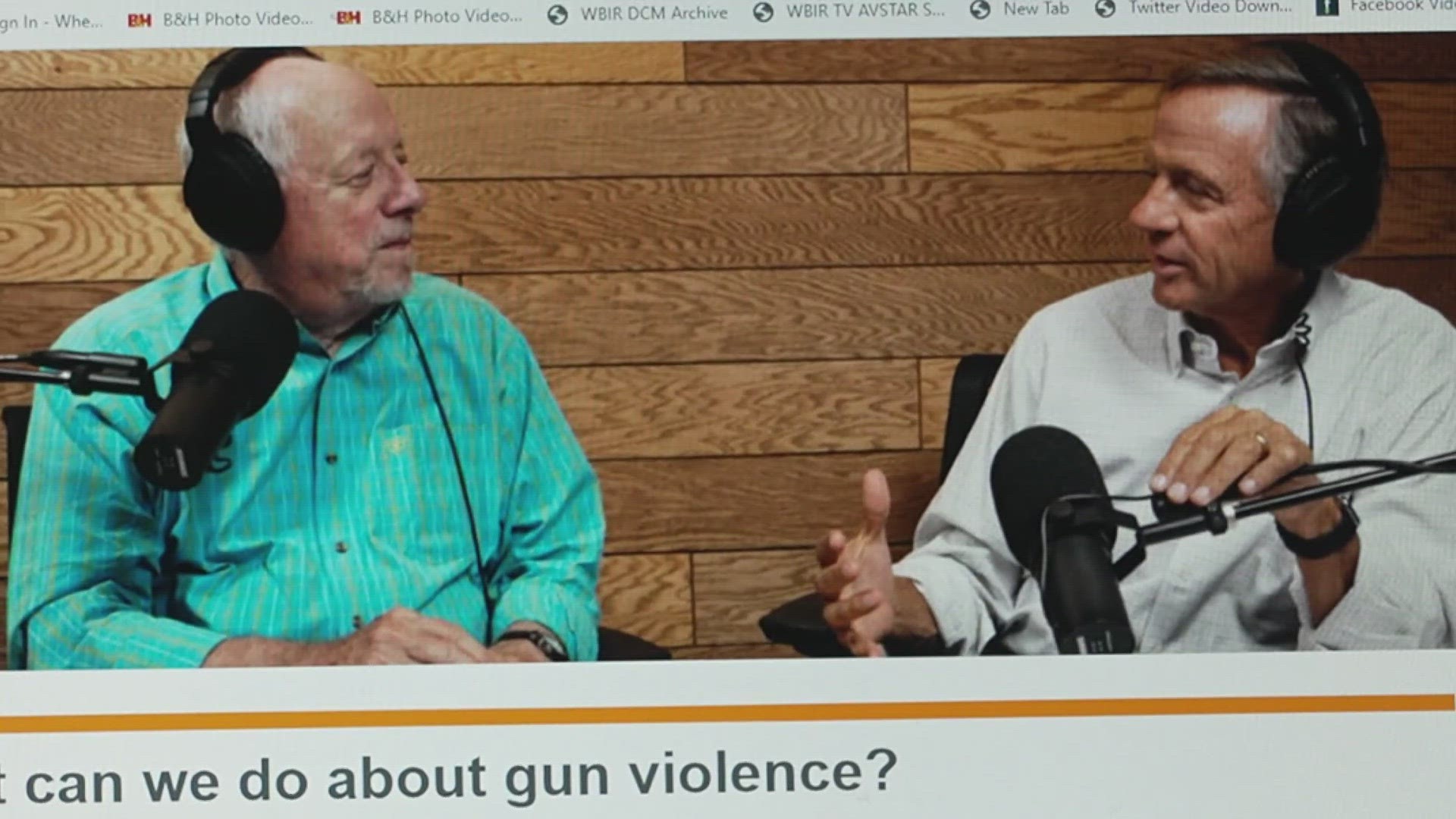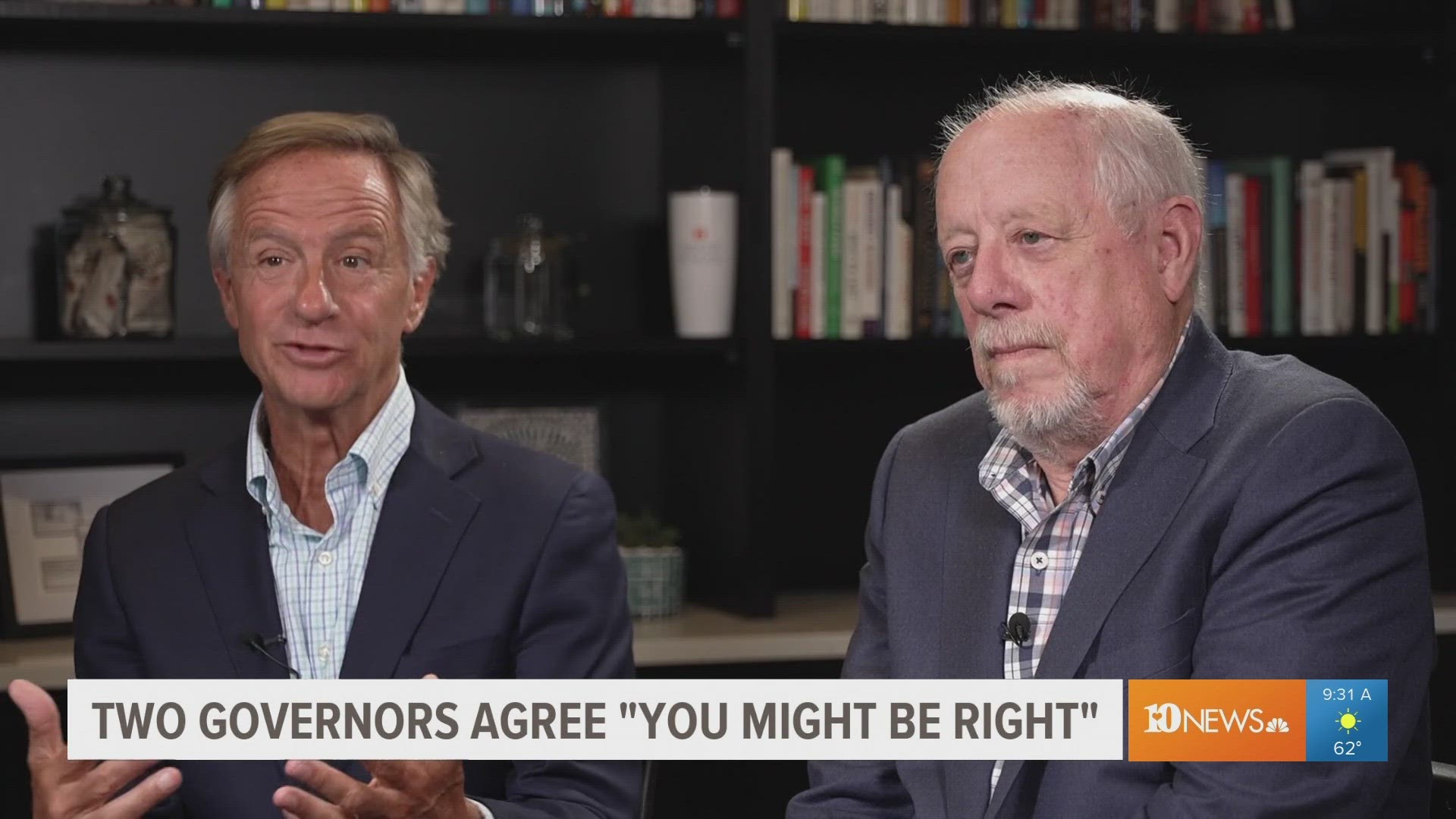NASHVILLE, Tenn. — Too often today the state of national politics feels like Us. vs. Them and You vs. Me.
Families avoid the subject when they sit down to eat. Neighbors eye each other with suspicion, wary of that campaign sign thrust into the yard like a spear.
It's all become pretty nasty and divisive out there.
Into the fray comes a unique podcast featuring two former Tennessee governors, one on each side of major party politics.
Republican Bill Haslam, 65, of Knoxville and Democrat Phil Bredesen, 79, of Nashville are wrapping up their second season of "You Might Be Right," which aims to encourage people of differing views -- meaning all of us -- to have civil conversations that promote a mutual understanding.
The podcast is available online at the typical places such as Apple and Spotify. It's sponsored by the Howard H. Baker Jr. School of Public Policy and Public Affairs at the University of Tennessee.

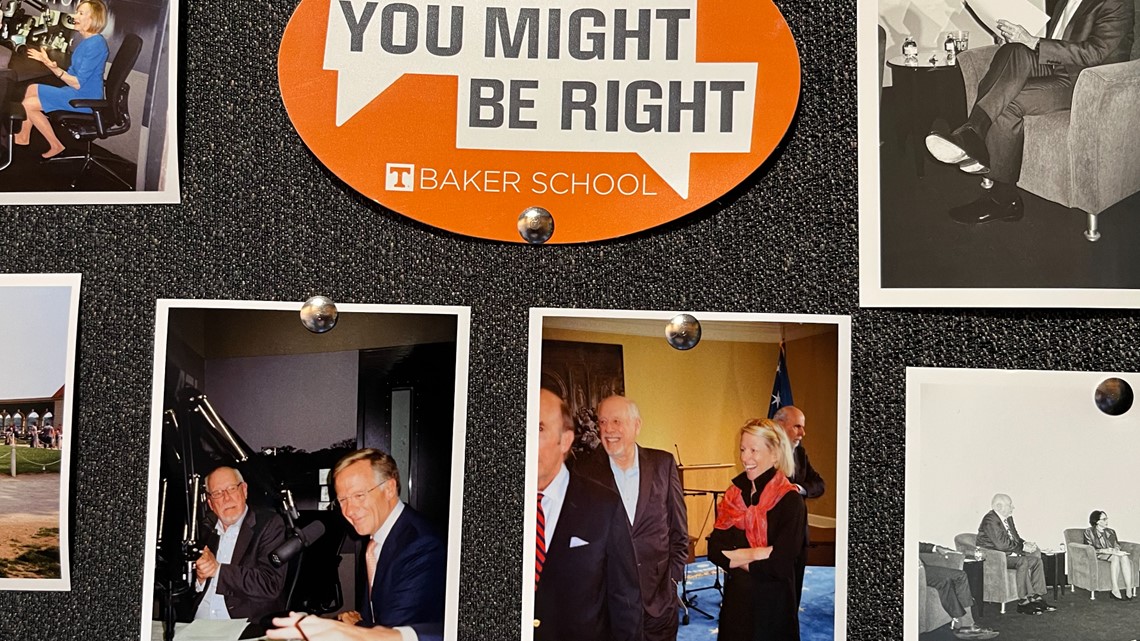
It takes its name from something the late Howard Baker Jr., a former Tennessee senator, used to say. Baker, a Republican from Huntsville, who represented the state in the Senate from the late 1960s to the mid 1980s, believed in the idea that two people with very different viewpoints could still find common ground to make good decisions about the future of the country.
Much as one might hate to admit it, there's always the chance that the other fellow might be right, Baker believed.
Before recording their most recent podcast, Haslam and Bredesen sat down with WBIR to talk about how the project came together, what they're trying to accomplish and where this all might be going.
"I thought if we could have some environment where people could hear the other side thoughtfully presented, then maybe some of the polarization would start diminishing," Haslam said.
Said Bredesen: "One of the things we've lost in this country is the ability to have discussions about these things, knowing that you're not going to agree. But it helps to understand where the other person is coming from and see it as a genuine difference of opinion and not some character flaw in the other person."
AVOIDING THE CRAZY CORNERS
Haslam, a former two-term Knoxville mayor and Tennessee governor from 2011-19, had been kicking around the idea of a podcast for awhile.
He first thought of calling it, "No Shouting Allowed".
But Baker's mantra about listening to the other guy encapsulated his vision for the conversation.
"He had this humility about him," Haslam said. "He had this respect for other people's views, this feeling that you might be right."
Haslam and Bredesen are friends with a mutual respect and regard that goes back close to 20 years. In fact, once when Bredesen was governor in the 2000s, Haslam picked his brain about the "what if" question of a future run for governor himself.
Bredesen, a former two-term Nashville mayor who served as Tennessee governor from 2003-2011, embraced the podcast idea when Haslam pitched it. It was one of those things where you think, Why didn't I think of that? he said.


They launched "You Might Be Right" a year ago this month. They recorded eight episodes that tackled a range of topics -- gun violence, climate change, charter schools, Obamacare, the value of the Senate filibuster and global trade.
One of the most powerful was their December 2022 conversation with social scientist Arthur Brooks. The title: "Am I Using My Morals As a Weapon or a Gift?" Brooks is a Harvard University professor who also is on the Baker Center Board of Fellows.
This season's episodes have addressed the perils of teaching American history these days, disparities in public education and profound changes in the mainstream media and how it covers the world.
When WBIR met with them in August, they were about to record a conversation with two secretaries of state -- Republican Brad Raffensperger of Georgia and Democrat Jocelyn Benson of Michigan.
Both leaders have had to navigate political turmoil and finger-pointing while ensuring that voting is conducted fairly and legally in their state. In 2020, President Donald Trump asked Raffensperger to find him some 11,000 votes to show that he'd actually won Georgia in his presidential contest against Joe Biden.
Raffensperger declined; there were no missing Trump votes; and Trump lost Georgia, a key reason he's no longer president.
Bredesen and Haslam said they try to have guests on who are "reasonable people." They avoid the "crazy corners," Bredesen said.
Bredesen said they don't want guests who come to parrot one side of an issue or another.
Haslam said they seek thoughtful presentations of a topic presented from more than one side. Anyone can yell; the governors look for people who can converse in a meaningful way.
They're looking forward to a third season, Bredesen said. Future topics might include a look at artificial intelligence, which is about to forever alter not just the United States but the world in general.
Haslam hinted about the possibility of another project related to next year's big elections.

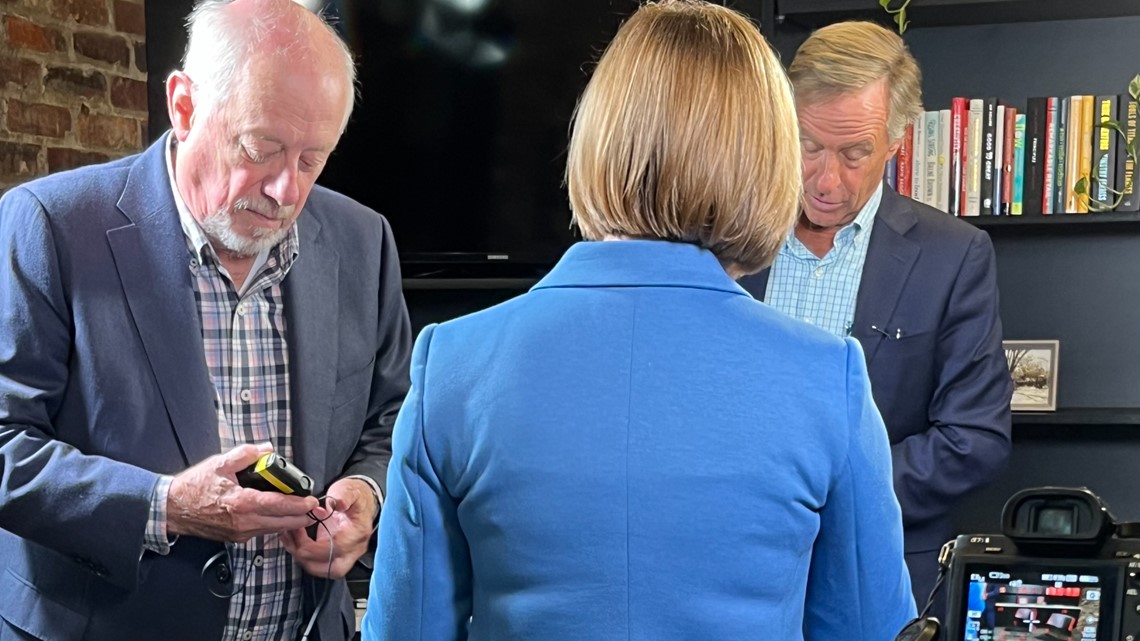
One of their concluding questions for every podcast asks guests if they've ever changed their mind or altered their views as a result of an encounter with someone with a differing perspective.
The governors said they've experienced such epiphanies themselves during the course of the podcast.
Haslam said he found himself changing his views about the use of smaller, more versatile nuclear power plants in Tennessee after a podcast last year that included TVA CEO Jeff Lyash. Term limits is another topic about which he said he's modified his views.
Bredesen said their discussions about guns in America have helped him expand his perspective. The United States has been a pretty violent country in its nearly 250 years, he noted.
DON'T BAIL OUT
No one blames you if you find yourself discouraged by the current state of manners and discourse in America.
Democracy has always been a delicate experiment. It's gone through rough times over the last few decades.
But Haslam and Bredesen hope you'll find reason for optimism by listening to their podcast. They're hopeful, not pessimistic.
Don't bail out, Haslam said. Engage in the process. Our unique form of government needs you.
Good leaders do exist. Find people who aren't just in politics for themselves, Bredesen said. Look for people passionate about their values.
"I also look for people in the office who I think have something they believe in that they would be willing to give up the office to accomplish," he said.

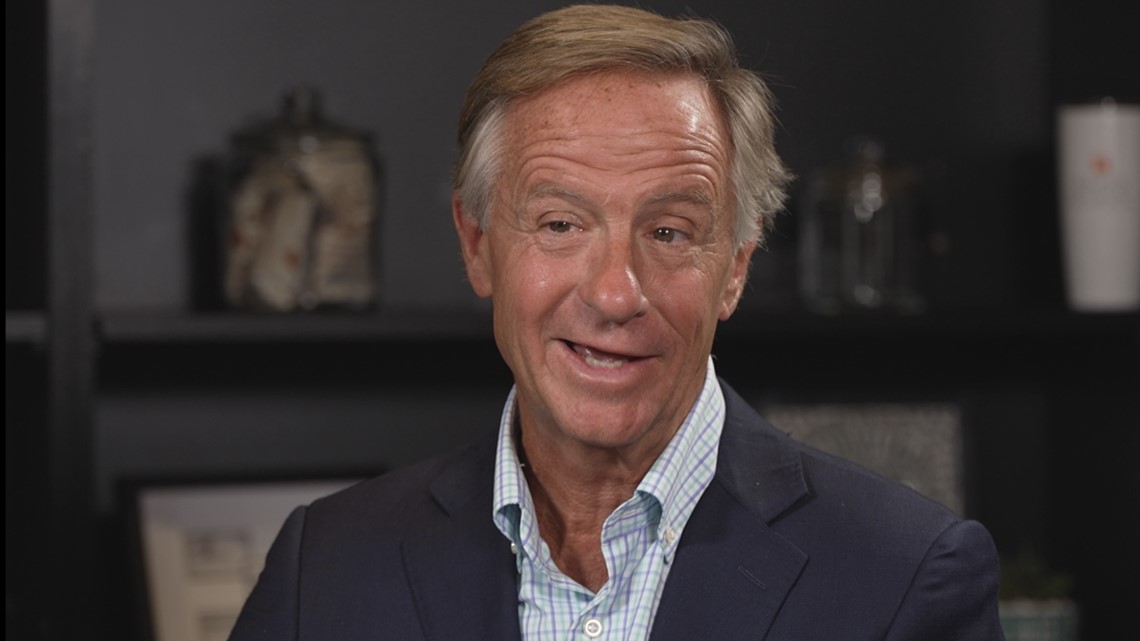
The governors aren't really convinced that things are as bad as they may seem. It might look that way if all you watch is point-of-view cable TV. Or if you get all your news on social media.
So perhaps the solution is to avoid all of the media drama and pay more attention to what's happening right in your community.
Bredesen thinks that if you look behind the noise and tumult created by a few, you'll find a far larger group of people who share a deep belief in this country. It's still a touchpoint for most Americans.
"If I go out to a Rotary or a Kiwanis or to ordinary people who live in the community, they may have views on the things but they're not like that in the sense where 'I'm totally right and everybody else is wrong and they're bad people because they have a different opinion,' " Bredesen said.
In that way, Baker looms over the podcast, every episode.
"The Great Conciliator," as he was sometimes known, is an inspiration and a guide for the governors and, they hope, for the public at large. The Baker Center itself can help promote civil discussions, the governors said.
"I would love to see the Baker Center just become really a focus for the whole country on how to approach democracy in a civil and practical way. I think that kind of thing ought to come out of here and the middle of the country and a state like Tennessee," Bredesen said.
Besides being a U.S. senator, Baker served as a moral compass on the Senate committee that investigated the Nixon administration during Watergate. He also was President Ronald Reagan's chief of staff during his second term.
Baker concluded his public career 2001-05 as U.S. ambassador to Japan.


He died at age 88 in June 2014 at his beloved Huntsville home.
How elected leaders and veteran politicians responded to his passing offers a reminder of what's possible in this country, Haslam said.
Baker died during Haslam's first term as governor. The Haslam family, founder of a vast privately held trucking and convenience store chain, helped Baker in the 1960s when he decided to seek the Senate. Bill Haslam was an intern in Baker's Washington office in 1978.
Haslam recalled for 10News attending Baker's funeral at the First Presbyterian Church in Huntsville.
He sat between then Vice President Joe Biden and former Vice President Al Gore, both Democrats.
"I was so struck when I went in there -- how many senators and former senators were there, and it was about even Republicans and Democrats," he said.
In a country so closely divided politically, Haslam said, we all need to find and appreciate our common ground.
He's reminded of another notion Baker held on to in his life.
It's been proven true through wars, including the horrific Civil War, riots, recessions, and the Depression.
"The Republic will survive," Haslam said, recalling Baker's words.
We are doing the business of the American people. We do it every day. We have to do it with the same people every day. And if we cannot be civil to one another, and if we stop dealing with those with whom we disagree, or that we don't like, we would soon stop functioning altogether. . . .Retired Sen. Howard Baker in July 1998 in a lecture at the U.S. Senate.



